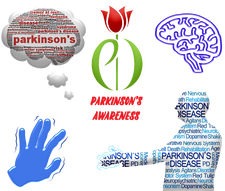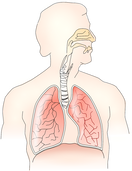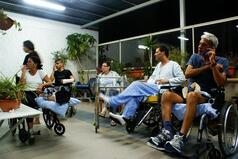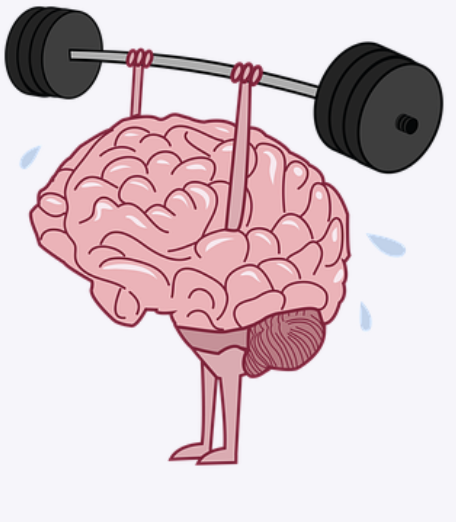|
Believe it or not, weight gain is just as hard for some people as weight loss is for others, especially men, notes Marjorie Nolan, MS, RD, a spokeswoman for the American Dietetic Association. “Depending on how underweight you are, it could be just as unhealthy as being overweight,” she says. A poor diet can lead to health complications, whether you’re thin or fat.
If you need to gain healthy weight, overeating, especially empty-calorie foods, isn’t the answer. “You want to eat right so that you’re gaining muscle and not fat,” Nolan explains. Follow these 10 steps to smartly gain muscle — and weight:
0 Comments
Learning effective communication skills is a straightforward process that allows you to express yourself and improve both your personal and professional relationships. Knowing how to listen well and communicate clearly will help you express yourself in job interviews, business meetings, and in your personal life as well.
What Is Effective Communication? Being an effective communicator means being able to both actively listen and clearly express yourself to those around you. Unfortunately, there is no one skill or technique that will make you a better communicator. Effective communication requires a diverse skillset that covers both verbal and nonverbal communication cues, as well as close listening. Compassion-Focused Therapy (CFT) helps those who struggle with the shame and self-criticism that can result from early experiences of abuse or neglect. CFT teaches clients to cultivate skills in compassion and self-compassion, which can help regulate mood and lead to feelings of safety, self-acceptance, and comfort.
The technique is similar to Mindfulness-Based Cognitive Therapy, which also instructs clients about the science behind the mind-body connection and how to practice mind and body awareness. New Infographic Available with Exercise Recommendations for Parkinson’s Disease (www.acsm.org)5/30/2022 ACSM and the Parkinson’s Foundation developed a new infographic to provide safe and effective physical activity guidance for people with Parkinson’s and the certified exercise professionals working with them. The exercise recommendations build upon the science-based standards in the recently released 11th edition of ACSM’s Guidelines for Exercise Testing and Prescription. The new infographic includes recommended frequency, intensity, time, type, volume and progression of exercises that are safe and effective for people with Parkinson’s across four domains: aerobic activity, strength training, balance/agility/multitasking and stretching.
We know exercising helps our health and can improve symptoms for chronic medical conditions, yet starting or keeping an exercise routine can be challenging. This infographic provides practical, evidence-based guidelines to help even more people benefit from an active lifestyle. Spirometry is the most common type of pulmonary function or breathing test. This test measures how much air you can breathe in and out of your lungs, as well as how easily and fast you can the blow the air out of your lungs.
Your doctor may order spirometry if you have wheezing, shortness of breath, or a cough. This can help diagnose problems like asthma and COPD, or can be done to check lung function before a surgery. You may also have spirometry done if you are being treated for a chronic lung disease, such as COPD, asthma, or pulmonary fibrosis, to determine if your disease is improving or worsening and whether your medications or inhalers are working properly. Spirometry can be done in the doctor’s office or in a special pulmonary function testing lab. When you get injured, there are two parts of recovering. One of the two parts of recovery is the physical, and then, there is the mental aspect of recovery. A lot of times, people forget they need to recover mentally from the ways their injury affected their mental state-- and that healing goes far beyond just physical.
WHY IS IT IMPORTANT TO MENTALLY RECOVER FROM AN INJURY? Avoiding to properly recover mentally from your physical injury can have lasting effects. When you are physically recovered you may be afraid of reinjury, or may have posttraumatic stress when exercising from when you were initially injured. A few other effects it may have is insomnia, anger, and changes in appetite. When you exercise, endorphins get released in your brain and it gives you a bit of a high. If you are injured and aren’t getting the same amount of exercise, you can easily become irritable, depressed, and have changes in appetite where you either stop eating, or eat very unhealthy foods, which can lead to weight gain or an eating disorder. HOW CAN YOU MENTALLY RECOVER FROM INJURY? Once you suffer an injury, you are normally limited in what types of activities you can do. There are a number of ways to stay positive, and mentally recover from your injury while you are physically healing. Changes to your body and brain are normal as you age. However, there are some things you can do to help slow any decline in memory and lower your risk of developing Alzheimer’s disease or other dementias. Here are five things I recommend to my patients in order of importance:
|
The FDF LifestyleThis page includes blogs, healthy articles, inspiring pictures, exercise tutorials, music, etc. No content on this site, regardless of date, should ever be used as a substitute for direct medical advice from your doctor or other qualified clinician. Archives
April 2024
Visit this section daily to become more healthy and positive.Strengthen your mind by consistently learning new information.
New articles are uploaded throughout the week. |
Live |
Life |
To |
The |
Fullest |
Family Dreams Fitness LLC (www.familydreamsfitness.com) is not responsible or liable for any advice, course of treatment, diagnosis or any other information, services or products that you obtain through this site. You are encouraged to consult with your doctor with regard to this information contained on or through this website. After reading articles, watching videos or reading other content from this website, you are encouraged to review the information carefully with your professional healthcare provider.
You should understand that when participating in any exercise or exercise program, there is the possibility of physical injury. If you engage in any exercise or exercise program on this website, you agree that you do so at your own risk, are voluntarily participating in these activities, assume all risk of injury to yourself, and agree to release and discharge Family Dreams Fitness LLC from any and all claims or causes of action, known or unknown, arising out of Family Dreams Fitness LLC.














